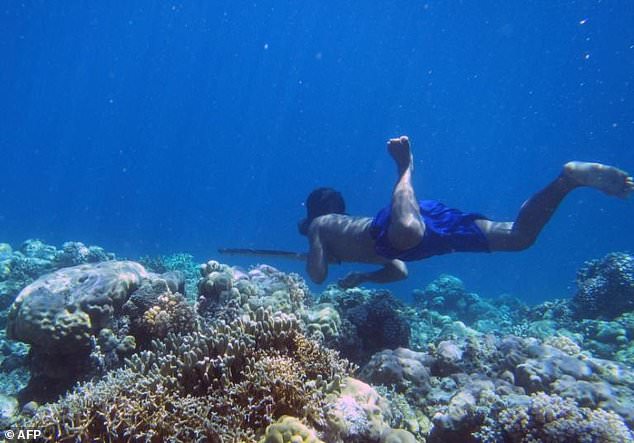First genetic adaptation to diving discovered in ‘Sea Nomads’
April 20, 2018
Researchers have discovered the first evidence that people can genetically adapt to deep diving, as shown the unusually large spleens in indigenous people of Indonesia known as the “Sea Nomads,” a study said Thursday.
The spear-fishing Bajau people regularly free-dive to depths of up to 230 feet (70 meters), with only weights and a wooden mask.
They spend up to 60 percent of their work day diving for fish, spearing octopus and gathering crustaceans — an amount of time rivaled only by sea otters — and can stay underwater up to 13 minutes at a time, said the report in the journal Cell.
A post doctoral candidate at the Centre for GeoGenetics at the University of Copenhagen, wondered if they had genetically adapted somehow to be able to spend more time underwater than other people.
She took genetic samples and did ultrasound scans, which showed that Bajau had spleens about 50 percent larger than the Saluan.
(Spleens are important in diving — and are also enlarged in some seals — because they release more oxygen into the blood when the body is under stress, or a person is holding their breath underwater. Spleens were larger in the Balau people whether they were regular divers or not, and further analysis of their DNA revealed why.)
COURTESY:
( http://www.dailymail.co.uk/wires/afp/article-5635229/First-genetic-adaptation-diving-discovered-Sea-Nomads.html
A Bajau diver of Indonesia hunts underwater using a traditional spear in this photo provided by researcher Melissa Llardo)

